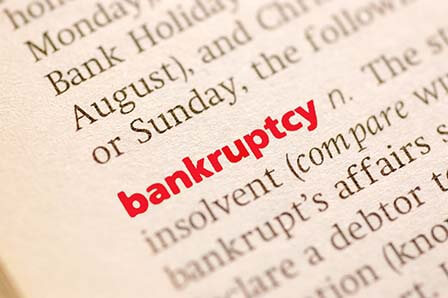 Understanding the various bankruptcy processes can be very difficult for the uninitiated. With several types of bankruptcy possible, knowing the differences between each one and whether they may apply to your financial situation is certainly challenging.
Understanding the various bankruptcy processes can be very difficult for the uninitiated. With several types of bankruptcy possible, knowing the differences between each one and whether they may apply to your financial situation is certainly challenging.
For example, there are different types of bankruptcies for individuals and businesses. Chapter 7 bankruptcy is commonly known as personal bankruptcy and Chapter 11 bankruptcy is known as business bankruptcy, with several differences between each type.
So, let’s take a closer look at the main differences between personal bankruptcy and business bankruptcy to try get a better understanding of the processes involved.
Reorganization vs. Liquidation
Chapter 7 bankruptcy is often referred to as liquidation bankruptcy as the process involves liquidating assets to allow the remainder of the debt to be discharged. This is quite different than business bankruptcy, which is called reorganization bankruptcy due to the differing process during the bankruptcy.
For example, Chapter 11 bankruptcy is designed to keep a business afloat. The process aims to restructure and reorganize debt so that the business can continue to operate, which would allow them to pay of debts in the future.
It’s actually possible for a business to file for Chapter 7 bankruptcy, although this means that their assets will be liquidated to pay off and then discharge debt. When a business files for Chapter 7 bankruptcy the organization ceases to exist upon exiting bankruptcy.
Qualification Process
A huge difference between personal and business bankruptcy is the qualification processes. To quality for Chapter 7 bankruptcy you must undergo a means test to determine suitability for bankruptcy. This involves proving that you cannot pay off your debts, which is not required at any point during Chapter 11 bankruptcy.
For Chapter 11 bankruptcy the debtor (business) can propose plans for the bankruptcy process, although after a period passes the creditors can propose their own plans for the reorganization process.
Cancelling Certain Creditor Contracts
A noteworthy difference between business and personal bankruptcy is that businesses may have the opportunity to cancel creditor contracts. This is only permitted if the cancellation is deemed financially beneficial for both parties, so it certainly occurs in many Chapter 11 filings.
While possible to cancel many debts as an individual under bankruptcy, some creditor contracts cannot be cancelled under any circumstances, most notably student debts.
Cost
Chapter 11 bankruptcy is significantly more expensive than Chapter 7 bankruptcy. While there are expenses involved filing for Chapter 7, they are nowhere near as costly as Chapter 11.
This is understandable given the fact that business bankruptcy is about reorganizing debt so that it can continue to be paid off using company income, so the business still has a source of income that can cover the higher costs of the bankruptcy process.
The Travis Law Firm provides professional legal representation for Chapter 7 & Chapter 13 bankruptcy services for residents of all cities in Riverside and San Bernardino Counties. We have offices in Riverside, San Bernardino, Victorville, Temecula, Cathedral City and Ontario for the convenience of our Inland Empire, High Desert, and Coachella Valley clients. For more information about our bankruptcy law services and other legal representation, call us today at (951) 274-9501 or (951) 274-9501.
